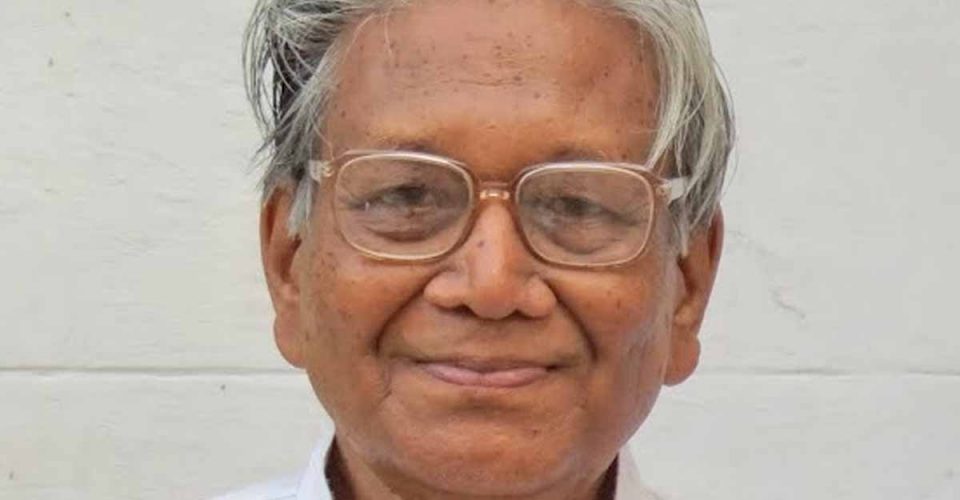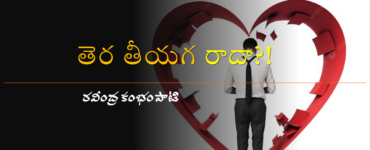Manoj Das (1934), the legend is no more. With his unique distinction as an outstanding writer, bilingual, of international repute, Das is regarded as a thinker, a spiritual seeker and an extraordinary speaker.
Many like me who grew up reading Das’s stories in School and College Curriculum, were astonished to know how his first poems and stories, published in magazines had earned him enviable appreciation. Even, he edited ‘Diganta’ (The Horizon), a literary journal in his school days. He had experiences of a number of incidents in childhood days and was initiated to the genre of fiction by his mother, who in her childhood had gathered treasure trove of stories from pilgrims and mendicants. Das continued to collect them from numerous sources. His profound knowledge about Indian and world literature impelled him to propound the theory that language is the significant factor to connect the people and to provide a basis for emotional integration and creative imagination.
Manoj Das was a firebrand student leader, embracing Marxism. Considering socialism as the panacea against the human predicament, poverty and inequality, Das used to write on the worries, woes and wounds a man faces. But Marxist Manoj Das became a mystic when he was just about 30. Being closer to Sri Aurobindo’s Philosophy and world view, he experienced a transformation in him. He beacme optimistic on more growth of human consciousness. “I always try to bring a solution to the contrast between the materialistic modernism and questioning spirituality. I took the other side”-he said.
This writer recollects a number of experiences , however small may be, relating to Manoj Das during past three decades. In 1985, while teaching my cousin, I came across a story ‘Krupana’ (The Sword) in the text book, wrote a letter to Das and to my utter surprise received an answer from his Puducherry Ashram, containing author’s view that the story envisaged a child’s idea on paternal love, affection and psycho-physical relation in the family. My understanding of the story became crystal clear. Around that time, we were avid and admiring readers of “The Heritage”, a magazine of high standard, edited by Das. But the expectation of discerning readers Countrywide shattered as the magazine ceased publication. Das’s commitment for aesthetic value and gradual decrease in the number of takers brought end to such an impressive English magazine.
On another occasion , as a speaker in the valedictory session of Bhubaneswar Book Fair, Das spoke on the promotion of books, specially literature and on the patronage of the establishment. Illustrating the story of Gunadhya, the hermit-author of ‘Brihat Katha’, Sri Das went on how the author reached out the king with the hope of recognition and patronage. And the king was not so patient to listen his stories. Feeling immensely helpless, the hermit-author returned and threw the entire manuscript on fire. However, the king understood his mistake and thereafter a small portion of the burnt materials were recovered. Thus came ‘Kathasarita Sagar”, the first collection of short stories in India.
In 1963, Das became a changed man. The Marxist in him became a mystic and he began to be a spiritual seeker. Vision of Shri Aurobindo brought a drastic change in his thought. He realized that man is small, he may remain small for some years, but basically he is divine. And that divinity, like a spark is hidden under the heaps of ashes of ignorance. He believed that entire history of human civilization is a kind of exploration of Man to place himself rightly in universal context, to understand himself in the vast perspective of infinity . During the life, a series of interruptions and recoveries, man has to find the answer of the same question. The writer in him received more inspiration from own spiritual experiences. With his views regarding man, he tried to understand the simplicity and complexity of human life through his writings. His versatility rests on his silent invasion, may it be mild, on the erosion of human value and morality, on the all pervading desperation and madness of human being all around. As a sincere seeker, his endeavour was to uphold the principle of truth, faith in man and to aspire for a transformation.
In a function organized by Odisha Sahitya Akademy (State Academy of Letters) on its Golden Jubilee Celebration in 2007, Das defined the success of an author. “In the ages of yore, there was no literature; but there was speculations, Speculation in the course of time metamorphosed into literature. So literature is an abridgement of reality and feeling. Success of an author lies in this abridgement.”
With more than 15 books of Short Stories, 7 collections of Poems, 6 Novels, 11 books of Feature, belle letters and essays, 5 travelogues and many other works to his credit (Most of his works are also in English), Manoj Das was a recipient of number of accolades and awards (including Padma Shree and Padma Bhusan) for his remarkable contribution to literature. One would be surprised to see the large store of his works.
During every interaction, meeting, lecture and discourse, Manoj Das was a precious personality, in demeanour and delineation. His demise is a monumental loss to Indian literature, more so to world literature, as his innumerable readers will miss an important voice. But it will reverberate their heart-valley for years to come.
*









Add comment